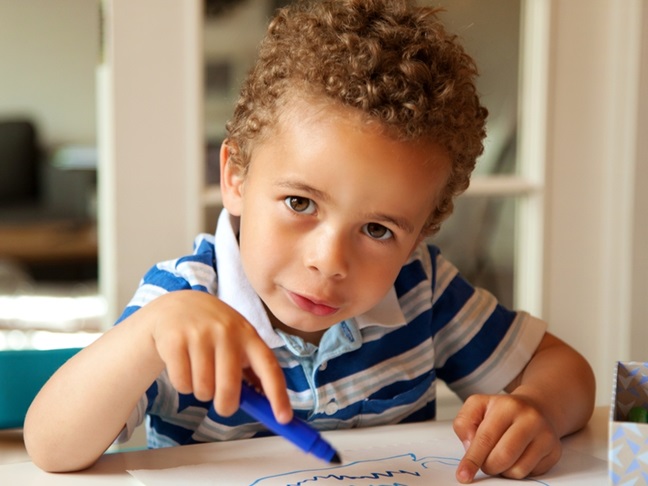A measured approach to praising your child is more beneficial than constantly complimenting them.
At least that’s the opinion of researchers such as Dr. Carol Dweck, PhD., who has spent the last 40 years studying the coping and resilience mechanisms of children for both Stanford and Columbia Universities. Zeroing in on what makes children less resilient has been her main focus for the last 14 years, and she concludes that the culprit is too much praise. Her newest research takes a look at parental praise and finds that process-based praise (verbalized like: “you tried really hard”) has a more positive long-term benefit for kids and makes them more eager to meet their everyday challenges.
Dr. Dweck has shown through her research that praising kids for their intelligence and abilities often limits their motivation to try harder. Children praised for a good effort continue to work to improve and are generally more flexible: they are resilient, motivated and more willing to take the risks of new challenges.
That’s also the conclusion of experts at Bright Horizons Family Solutions where developmental experts such as child therapist Brenna Hicks advise encouragement for good efforts and attitudes as a more positive alternative to praising the end results.
Can Too Much Praise Be Harmful?
As parents, we tend to be are praise-prone. We all want our children to have good self-esteem, and to that end we praise them constantly. This effort to help them feel good about themselves can do more harm than good, because excessive praise diminishes the power of a sincere and well-deserved compliment.
Used correctly, praise can make your toddler feel appreciated and inspired. Of course you should praise them when they accomplish a “first” – success at dressing themselves or using the potty chair, but don’t overdo it. Take notice of their efforts and emphasize those rather than the outcome.
Not every child will shine when trying out a new activity or physical challenge, but every action needn’t be defined as either good or bad. Point out the positives and admire genuine enthusiasm. Children can see through a false compliment, so take a diplomatic and honest approach that lets the child know you’re paying attention.
Don’t brag about your child’s accomplishments in public. It adds extra pressure onto them to perform and can be embarrassing. But do share his or her achievements with your spouse.
Non-verbal communication is another form of praise. A smile, a thumbs-up or a hug is an easy way for you to signal you approval to your child.
The truth is, the real world doesn’t offer us endless praise. And over-praising kids at an early age sets them up for disappointment later in life, and loss of self-esteem if they’ve grown up accustomed to a childhood of continuous praise for their every action. A more restrained approach helps children learn to do things for the simple joy of trying, not because they’re looking for parental approval. Give praise when it’s due, and don’t congratulate your kids just because you love them. Putting more emphasis and commenting on effort and progress will encourage and motivate your children.




